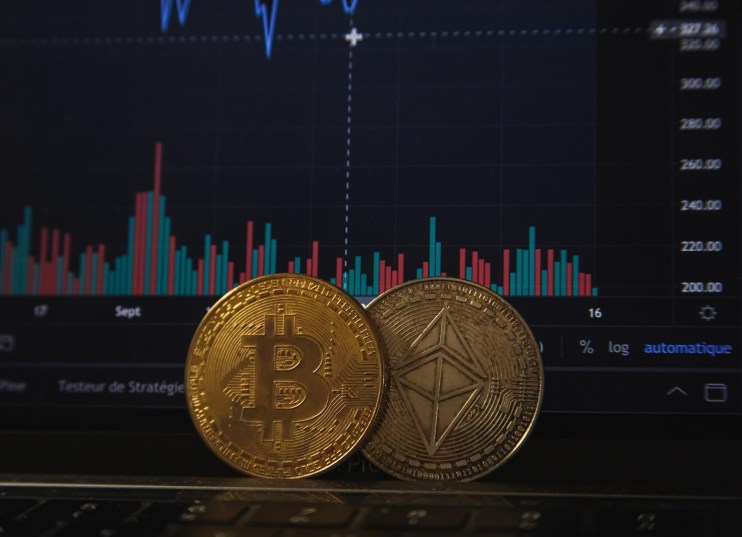Crypto’s volatile seven days amid Grayscale legal triumph

Data from CryptoCompare shows that the price of the flagship cryptocurrency Bitcoin (BTC) started the week trading at around $26,000 and quickly jumped to a high above the $28,000 mark, before enduring a correction that brought it back to $26,000.
Ethereum’s Ether, the second-largest digital currency by market capitalisation, moved similarly to BTC throughout the week, starting it at $1,650 and jumping to $1,750 before enduring a correction and coming back down to the same level it started the week at.
The prices of most major digital assets jumped this week after the US Court of Appeals for the DC Circuit ruled that the Securities and Exchange Commission (SEC) must review Grayscale Investments’ application to convert its “Grayscale Bitcoin Trust” product to a spot Bitcoin exchange-traded fund (ETF).
Circuit Judge Neomi Jehangir Rao noted that a fundamental principle of administrative law is that “agencies must treat like cases alike”, and added that the SEC approved for trading two Bitcoin futures funds while denying approval of Grayscale’s Bitcoin ETF.
The Judge added that Grayscale “maintains its proposed bitcoin exchange-traded product is materially similar to the Bitcoin futures exchange-traded products and should have been approved to trade on NYSE Arca” and notably added he agrees, and that “denial of Grayscale’s proposal was arbitrary and capricious because the Commission failed to explain its different treatment of similar products”.
Following the ruling, Grayscale’s Bitcoin Trust (GBTC) added more than $1.17 billion to its assets under management (AUM), a 7.2% rise to $17.4 billion in AUM, according to CCData.
Over the week, the SEC also announced a postponement in the review timelines for seven pending spot Bitcoin ETF applications. Amid an influx of new submissions, the regulatory agency has rescheduled the decision deadlines for numerous funds.
The move means that BlackRock’s iShares Bitcoin Trust, Fidelity’s Wise Origin Bitcoin Trust, VanEck Bitcoin Trust, WisdomTree Bitcoin Trust, and Invesco Galaxy Bitcoin ETF now have until October 17 to receive the SEC’s decision.
This week also saw the SEC charge Impact Theory, an LA-based media and entertainment company, for “conducting an unregistered offering of crypto asset securities in the form of purported non-fungible tokens (NFTs).” The firm raised approximately $30 million from investors that included US residents, between October and December 2021.
Meanwhile, decentralised exchange Uniswap dodged a legal bullet, as a US District Judge dismissed a class-action lawsuit that accused the platform, its developers, and investors of violating securities laws.
August sees decline in digital asset AUM and trading volumes
In August, the digital asset market saw total assets under management experience a significant downturn to $29.7 billion, a 12.7% drop compared to July, as market volatility and a steep drop in Bitcoin’s value exacerbated the decline.
According to CCData’s latest Digital Asset Management Review, average daily trading volumes for cryptocurrency investment products also dropped 17.9% to $208 million, marking the second consecutive month of falling volumes to the lowest level since January of this year.
While trading volumes are falling, developments in the space keep on going. This week the international financial messaging service SWIFT and Chainlink, a decentralized oracle platform, embarked on a series of experiments aiming to streamline the transfer of tokenized assets across a variety of blockchain networks.
The initiative also garnered participation from major financial institutions, including ANZ, BNP Paribas, BNY Mellon, Citi, and several others as SWIFT’s infrastructure functioning as a centralized entry point to multiple blockchains could mitigate operational and financial challenges institutions currently face.
Binance unveils ‘send cash’ feature in Latin America
Leading cryptocurrency exchange Binance has announced the launch of a new “Send Cash” feature in Latin America, allowing users in nine countries within the region to transfer cryptocurrency to bank accounts quickly, easily, and in a cost-effective way using Binance Pay.
The service leverages licensed transfer processing providers to facilitate these transactions and aims to simplify digital transfers by reducing time and costs, utilizing Binance Pay’s crypto payment technology and the services of licensed providers.
Over the week the exchange has also revealed it plans to gradually withdraw support for its stablecoin, Binance USD (BUSD), across all its services, in a move that comes after Paxos decided to stop minting new BUSD tokens.
Binance is encouraging its users to transition their BUSD holdings to other stablecoins on the platform before February 2024. As an incentive, users can trade BUSD for FDUSD without any trading fees or opt for a 1:1 conversion.
Francisco Memoria is a content creator at CryptoCompare who’s in love with technology and focuses on helping people see the value digital currencies have. His work has been published in numerous reputable industry publications. Francisco holds various cryptocurrencies.
Featured image via Unsplash.